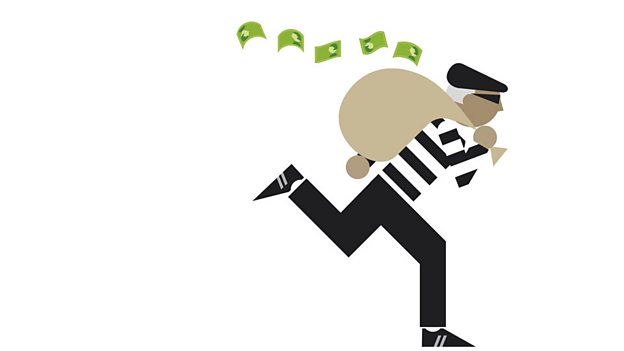Unit 4: Travellers' tales
Select a unit
- 1 Pop-ups
- 2 Hidden talents
- 3 Can't buy me love
- 4 Travellers' tales
- 5 The colleague from hell
- 6 Jurassic mystery: unpacking the past
- 7 Career changes
- 8 Art
- 9 Project management
- 10 The dog ate my homework!
- 11 The diary of a double agent
- 12 Fashion forward
- 13 Flat pack skyscrapers
- 14 Extreme sports
- 15 Food fads
- 16 Me, my selfie and I
- 17 Endangered animals
- 18 A nip and a tuck: cosmetic surgery
- 19 I'm really sorry...
- 20 Telling stories
- 21 Fakes and phrasals
- 22 Looking to the future
- 23 Becoming familiar with things
- 24 From rags to riches
- 25 Against the odds
- 26 Our future on Mars?
- 27 Where is it illegal to get a fish drunk?
- 28 Dodgy dating
- 29 Annoying advice
- 30 I'll have been studying English for thirty weeks
Session 2
Break up, break down, get up, make out... There are lots of multi-word verbs in English, and they can be confusing. But don't give up! We're here to help.
Activity 1
Introduction
Multi-word verbs with 'break'
Verbs in English are usually just one word, like break and take. But sometimes a verb can have two words, like break up and take up. And occasionally there's even a third word, as in break up with…
In this session we'll introduce you to the wonderful world of multi-word verbs, often known as phrasal verbs. There are lots of them in English and their meanings can be quite confusing - as you might know, when we add a second word to the main verb it usually changes the meaning. Let's take a look at how this works with the main verb break.
To do
Read this short story about a man who decided to rob a bank. How many examples of multi-word verbs with break are there? And what do they mean?
Read the text and complete the activity

Mark the monkey robber
Mark broke in at midnight. He stuffed as much cash as he could into a sack and ran back to his car. But just as he was driving away, the car broke down.
Mark was caught and went to jail. But every day he thought of new ways to break out. Finally he escaped, dressed as a gorilla. But when he got home, his girlfriend broke up with him. She said she didn't want a man who robbed banks and dressed as a monkey.
To do
A sad ending for Mark. But did you count all four multi-word verbs? They were: to break in, to break down, to break out and to break up (with). You might know some of them already. But just to make sure, let's do a test about their meanings. Can you work them out from the story?
Break, break, break
4 Questions
Choose the correct words to complete the definitions
Help
Activity
Choose the correct words to complete the definitions
Hint
Have another look at the end of the story.Question 1 of 4
Help
Activity
Choose the correct words to complete the definitions
Hint
Have another look at the third sentence.Question 2 of 4
Help
Activity
Choose the correct words to complete the definitions
Hint
Have another look at the first sentence.Question 3 of 4
Help
Activity
Choose the correct words to complete the definitions
Hint
What did Mark think about while he was in prison?Question 4 of 4
Excellent! Great job! Bad luck! You scored:
Grammar
So, as you've seen, these four multi-word verbs have different meanings.
They are made of the main verb, break, and an adverb, like in, out, up and down. You might recognise in, up, out and down as prepositions, but here they behave more like adverbs.
And some of them can be followed by a preposition, like with. Normally we say you break up 'with' someone.
Multiple meanings
And these aren't the only multi-word verbs with break. If you break away from a group, for example, you leave it. And how about to break off? Well, it has three meanings:
1) to separate something from something else
He broke off a bit of naan bread to eat.
2) to end a relationship
They broke off their engagement after only a week.
3) to suddenly stop speaking
Magnus broke off in the middle of his sentence when his girlfriend walked in.
So as you can see, it's a huge topic. In fact, there are whole books just about phrasal verbs. For more help visit our grammar reference, which has more information about the form, meaning and use of multi-word verbs.
Next
So how do we begin to make sense of the world of multi-word verbs? One way is to learn them in groups by topic. That's what we'll do next, with the topic of travel. See you there!
Session Vocabulary
to break up
to end a relationshipto break down
(of a car or vehicle) to stop workingto break out
(here) to escape from prisonto break in
to use force to enter a placeto break off
1) to separate something from something else2) to end a relationship
3) to suddenly stop speaking
to check in
to arrive at a hotel and register your details; also to give your information at an airport before you flyto check out
to pay the bill and leave a hotelto pick (someone) up
to collect someone from a placeto see (someone/something) off
to go to a place that someone is leaving from to say goodbyeto take off
(of a plane) to leave the groundto touch down
(of a plane) after flying, to touch the ground againto set off
to begin a journeyto get in
(of a plane or train) to arrive